WHERE AND HOW TO OBTAIN BEES
Where do I buy bees from?
You now have a hive, all set up, and in an ideal location, and a ‘‘vacancy” sign on it. It is possible of course, but not likely, that a bee scout, assigned to locating sites, will chance by and note the opportunity of a good home. Other scouts will follow and judge the merits of the quarters, and if the decision is favorable you will have a whole swarm within a few hours thereafter. That however is not planned beekeeping. It is rather the dream of the beginner that never comes true.Bees are usually obtained by purchase the same as any commodity. They are sold in packages, by weight: so much per pound, and running three thousand bees, and up, to the pound, unless the seller throws in a lot of fat old drones, or superannuated workers, or bees that are about to swarm and whose sacks are accordingly glutted with honey.
It is customary to tenant the new hive with a three pound package, and a queen. An opening colony of that size can make the hive hum; combs get drawn, food brought in, and the queen sets out on her egglaying activities. But where are the bee shops? Ask your neighboring beekeepers. Consult the advertisements in the bee journals. Inquire of your State Department of Agriculture, or of the same department at Washington, D. C.
Bee breeding now ranks with big business. Honey has grown up into a billion-dollar industry. Many an old, torn pair of pants in the apiary has a fat check book in it.
Breeders specialize in young, hardy, healthy honey-getters. They are subject to state regulation and inspection, and are examined periodically by the official state bee inspector and certified, if worthy of it, or else enjoined and restrained from further commercial activities. There are breeders in every state, and perhaps even in your own district. They are listed in the files of the Department of Agriculture, and the main office of that department is in the capitol city of your state. Write there for information.
Bees from a neighboring breeder have been acclimatized to local conditions. Their characteristics remain constant. Bees transplanted from other temperatures frequently lose their original personality traits. Thus, the far- famed southern hospitality may be gone with that wind, and the southern belle gone north may and frequently does become very cross and even unmanageable. For that reason many beekeepers buy locally.
Some beekeepers have started in apiculture with bees they removed from the wall of a house, or from a tree. It takes a hardy and persistent spirit to hive a wild colony, and even experience. The amateur, if he does it at all, ends up for his pains with a hive of half-mangled bees, an anatomy swollen from stings, and a conglomeration of wax, tree-bark and thick liquid mingled with larvae and dead bodies that he proudly refers to as honey. If you accept some, out of a sense of politeness, you will inevitably bite into a sting broken off in the mixture, and you will end up for your cordiality with a badly swollen tongue.
Some beekeepers buy nuclei and a queen for the new hive instead of bees by the pound and queen. A nucleus is defined by some as a small colony of bees. In actual practice it is a frame with drawn comb filled with larvae and pupae (brood) and covered with some bees. Several nuclei, joined in one hive, is the core for the development and growth of a new colony.
If your eventual purchase is on the pound basis, and from a certified breeder, you have taken the first precaution against disease. If further, the breeder is in your general district, the pressure of climatic environment upon bee characteristic remains constant. The wear and tear of a long trip is eliminated; crushing, suffocation and starvation en route are minimized.
How to Buy Bees for Beekeeping
Problems, however, present themselves when you contemplate the purchase of an established colony. Is it free from disease? A beginner cannot tell. A slipshod beekeeper may overlook some of the signs of trouble. The owner may not have a recent certificate of inspection. Is the condition and amount of the brood adequate and appropriate to the season? Is the honey comb straight or defective; is it drone or worker cell? Is it a colony of wild bees hived from a bee-tree, or the progeny of a good strain?
If the former owner is a man of ability and experience, and you have reason therefore to rely upon his representations, and if he is near enough to provide cooperation and instruction, then there is much in favor of a limited purchase from him.



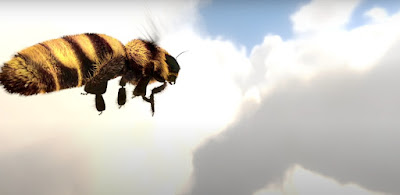
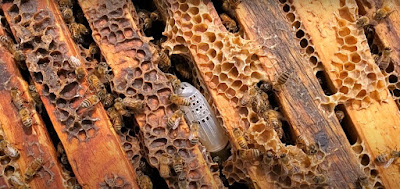
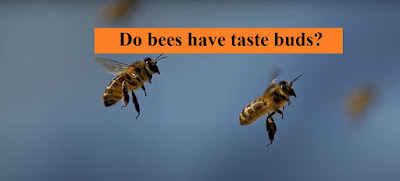
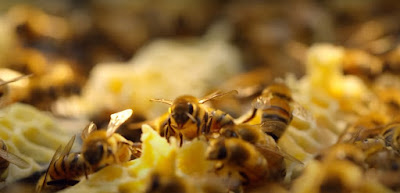

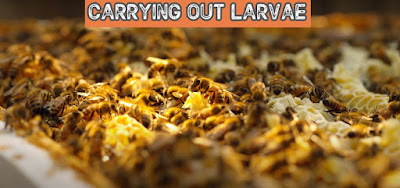



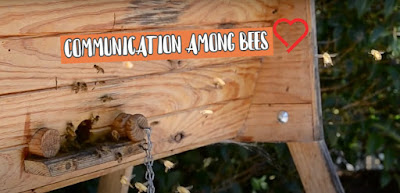
Comments
Post a Comment